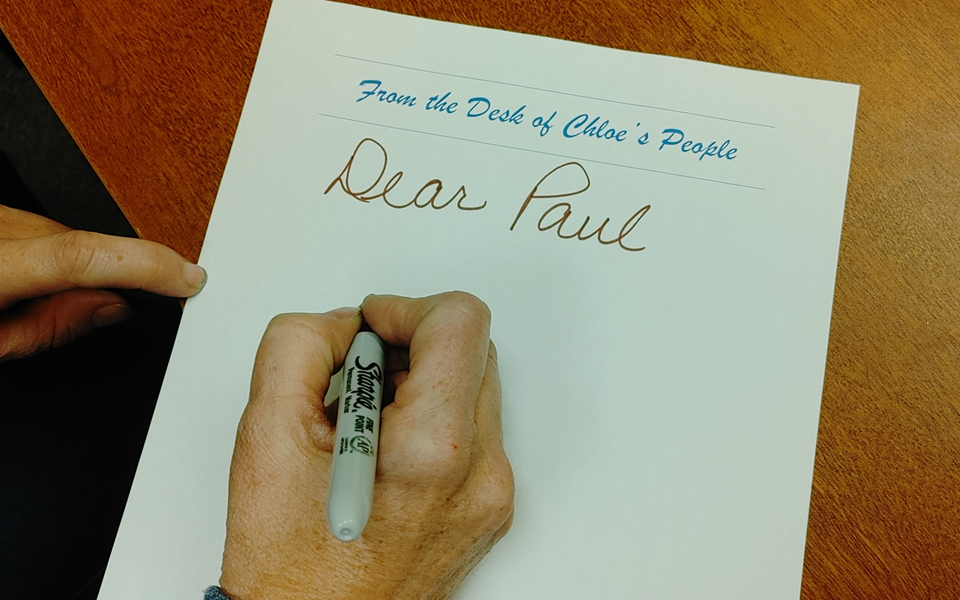Hespeler, March 12, 2023 © Scott McAndless – Lent 3
Exodus 17:1-7, Psalm 95, Romans 5:1-11, John 4:5-42
Women in the Bible are often interpreted harshly. Take the story of the woman at the well that we read this morning for example. Traditionally, in many sermons, this woman has been described in the most derogatory of terms. She is called as a prostitute or, at least, a loose woman.
Many preachers have pointed to the fact that she comes to the well at noon as an indication that she has been shunned by the other women in the community and so she has apparently waited until everyone else is having their midday siesta before coming. But that is actually not what that means.
No, the fact of the matter is that the Gospel of John is giving us a very particular message through the character of this woman. And it is, I believe, a message we definitely need to hear at this point in our journey. It turns out that this woman is an ideal disciple as far as this Gospel is concerned.
Night and Day
In the previous chapter, John told us the story of another potential disciple that encountered Jesus. In chapter three, it is Nicodemus who comes to Jesus to have a discussion about what it means to become his follower. But does anybody remember at what time of day Nicodemus came to Jesus? He came at night, in the dark. And the purpose behind that seems clear. He was afraid of being seen. He was afraid of declaring his allegiance to Jesus in a public way.
But this woman is the complete opposite. She comes to Jesus at the brightest time of the day. The image of Jesus as the light of the world is a theme that runs through this entire Gospel and this woman, understanding that, comes in the light of day.
She is the First
She is also the first one in the entire gospel to hear Jesus speak of his own divinity when he says, “I am he, the one who is speaking to you.” Every time Jesus says something like that in this gospel, it is a reference back to what God said to Moses at the burning bush: “I am who I am.”
And, of course, this woman is the first person in the Gospel to become an evangelist in her own right, sharing the good news of what she has learned from Jesus with all the people of her city. She might just be the best disciple of Jesus that we meet in this whole Gospel.
But She is Different
But there is just one thing. She is very different from Jesus. This is something that is highlighted again and again in this story. She is a woman, he is a man. She is a Samaritan, he is a Jew. And we are explicitly reminded that, “Jews do not share things in common with Samaritans.” They also worship in different places and different ways. There are so many things about this woman that would seem to make it impossible for her to become a disciple of Jesus, and yet we see her stepping into that role perfectly.
Our Lenten Journey
And I believe that God has sent us this passage to dwell on today for a very good reason. We are on a special Lenten journey. We are in a time of wilderness wandering, trying to seek the answers to those essential questions that came out of the first part of our journey. We are expecting God to speak to us about these matters. And I do believe that God is speaking to us in this particular passage today.
One of the questions we are asking is this: “How can we be both kind and honest with one another? How can we engage in tough conversations that strengthen our community?” That question, ultimately, is all about how we can become mutual disciples together, despite the significant differences we might have amongst ourselves. It is about recognizing that we can disagree sometimes in all honesty and yet still be kind and actually strengthen one another.
Jesus’ Example
And I think that’s what makes this story of Jesus and the woman at the well so helpful. It’s all about Jesus engaging her, despite their differences, bringing about some pretty spectacular results both in terms of personal growth and the growth of the Christian community. So, let’s take a good look at Jesus’ interaction with this woman. I believe it has a great deal to teach us.
He Seeks her Out

The first thing that I would note that Jesus does is this: he seeks her out. The very fact that Jesus is even in this town where she lives and draws her water is actually kind of remarkable. Jews in Jesus’ day simply did not pass through Samaritan territory. Even though Samaria lay right in the middle, directly between Galilee and Judea, it was the common practice at that time for Jews to go the long way around just to avoid the possibility of having to encounter an actual Samaritan.
But Jesus is there, which means he has intentionally chosen to go that way. And we need to be willing to engage with people who are different that intentionally. The temptation most of the time is to just avoid those who are different from us and spend all of our time just talking to people who already agree with us.
But Jesus seeks her out and he intentionally engages in conversation about the very things that set them apart, not in a mean or insulting way as we might sometimes be tempted to do, and yet in a refreshingly honest way.
The Woman and her “Husbands”
This is something that is often misinterpreted in the story. At one point, Jesus says to her, “You are right in saying, ‘I have no husband,’ for you have had five husbands, and the one you have now is not your husband. What you have said is true!”
And I know how that is usually taken. This is often taken as Jesus criticizing her, perhaps even shaming her, over her past sexual history. I know, that’s always where our minds go. But that really doesn’t make any sense. It’s not as if he’s accusing her of any sort of unsavory relationship. He says that she had five husbands, not five johns. And she takes no offense from what he says either, because she knows that that’s not what it is about.
Jewish View of Samaritans
What Jesus is actually referring to here is a longstanding point of contention between Samaritans and Judeans like himself. You see, the Jews didn’t think that the Samaritans had a proper relationship with God, that is to say they weren’t married to God in the same way that Jews were. That’s what Jesus is referring to when he says that she has no husband.
And when he speaks about the other five husbands she has had, he is referring to a popular belief that the Jews had about Samaritans. You see, according to a passage in the Second Book of Kings (2 Kings 17:30), the real problem that the Samaritans had in their relationship with God was that there were five tribes among them who mixed the worship of Yahweh with the worship of foreign gods.
So Jesus isn’t talking personally about this woman and who she has slept with. He is talking about what the Jewish people accused the Samaritan people as a whole of doing wrong in their worship.
She Replied in Kind
And she understands exactly what he is talking about. She doesn’t react as if he had just made some sort of judgement on her sex life. Not at all! She understands that they are in a discussion about how to properly worship the God of Israel and so she responds with her own challenge about such matters. “Sir,” she says, “I see that you are a prophet. Our ancestors worshiped on this mountain, but you say that the place where people must worship is in Jerusalem.”
So really, between the two of them, they have just managed to raise two of the most contentious points of disagreement between their two peoples.
And the whole question of the Samaritans worshiping on “this mountain,” that is to say Mount Garizim in Samaria, was a particularly sore point for the Samaritans. You see, they had had a temple there right up until the time that the Judeans came and destroyed it about a century before the time of Jesus. They still continued to worship in the same place, and you can bet that they resented Jewish interference in their religion every time they did.
Engaging Openly and Honestly
But there is a lesson in this about how we can enter into a constructive faith relationship with people who are different from us. All too often, it is tempting for us to just avoid the difficult and potentially uncomfortable conversations about how we are different. And, as a result, we retreat into talking about safe subjects where we do not risk disagreement.
But it is when we step out in faith and take that risk in conversation with someone else that we encounter the greatest possibility of personal growth as well as the growth of the church, as we see in this story.
Finding the Greater Truth
But also notice the perspective that Jesus brings to this potential disagreement between the two of them. Now that they have both acknowledged that their people have radically different approaches to the worship of the God of Israel, Jesus goes on to say, “But the hour is coming and is now here when the true worshipers will worship the Father in spirit and truth, for the Father seeks such as these to worship him.”
So, what is he doing there? He is acknowledging the differences in approach and practice of worship. He does not seek to minimize them or dismiss them. And yet, he encourages them both to look beyond those surface differences and recognize that there is a greater and far more transcendent truth to which they can both reach despite their differences: “God is spirit, and those who worship him must worship in spirit and truth.”
How it Applies to us
It will always be true that the people we encounter will have different approaches, different ways of thinking, different ways of being. We should not be afraid of that. We must engage them in openness and honesty valuing that difference because it is something that will enrich both of us.
And at the same time, we need to remain open to embracing the greater truth that goes beyond those differences. In doing that, we can find a unity of spirit that is able to transcend whatever differences we may struggle with. That is what Jesus finds with this woman and that is what we can find with those who are different from us.
The Water Imagery
There’s one particular image that runs through this entire encounter between Jesus and the woman by the well, and that is the image of water. She comes to draw water for herself, Jesus asks her to draw some for him as well. And then Jesus makes an incredible offer of a different kind of water to her “If you knew the gift of God and who it is that is saying to you, ‘Give me a drink,’ you would have asked him, and he would have given you living water.”
And this image of living water is very clearly an image of someone who has been perfectly united with Christ to the point that new life wells up within her. And there is something in this story that indicates that this woman accepts this incredible gift from Jesus.
She Left her Jar
It’s a little point that is often missed but it is really important. It comes after Jesus makes this offer of living water, after their disagreement over proper worship and after Jesus has called her to embrace the higher truth that God is spirit. After that, the gospel writer tells us this: “Then the woman left her water jar and went back to the city.”
Now why would she do that, why would she leave her jar? There is only one explanation that makes sense. She has believed what Jesus has told her; she has accepted the gift of living water that will flow up from within her. What need has she for a water jar anymore? This is the symbolic way in which the gospel writer tells us that she has become a perfect disciple.
The Results
And what happens as a result of that? Something quite extraordinary. The entire population of the city, it seems, is brought to faith in Jesus along with her. We’re talking about extraordinary growth of faith in Christ.
That is the power of actually engaging someone who is different from us. We are both able to grow in the process when we open our hearts to truly listen and speak to someone who is different.
But the most surprising result of all is enormous growth, growth that may come in various forms. It doesn’t always mean numerical growth for the church, of course, but growth is inevitable. And so, though it may be hard to engage with people who are different from us, though it may feel uncomfortable at times, it is always going to be worth it.
So let us take the example given to us by Jesus himself and of this woman who left her water jar behind. Let’s expect the great things that will come from learning how to talk about how we are different and finding richness in that diversity.





